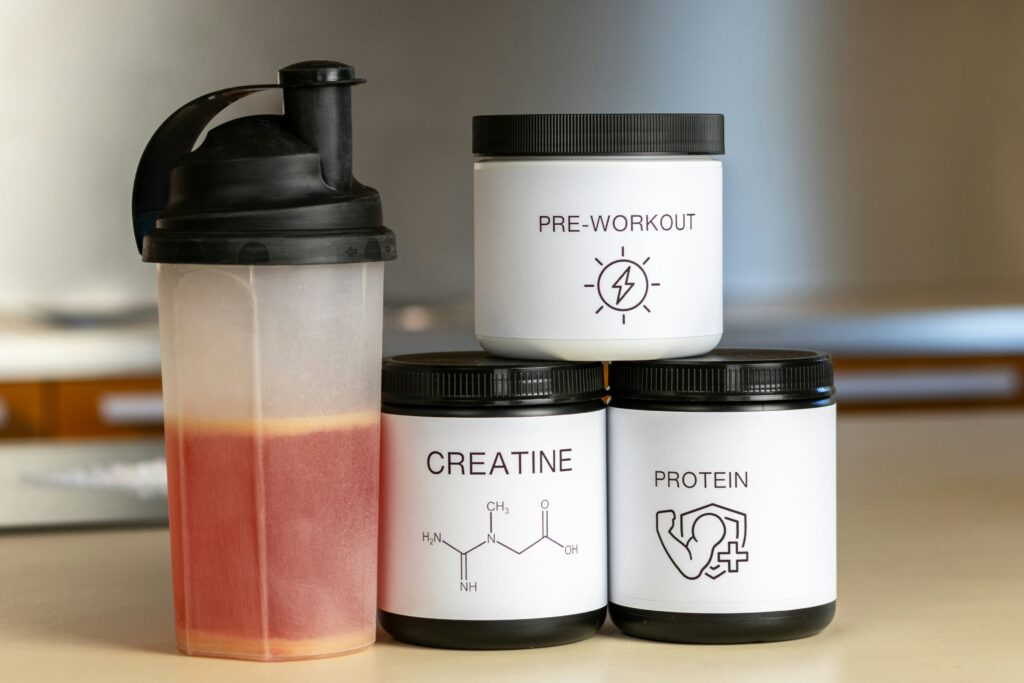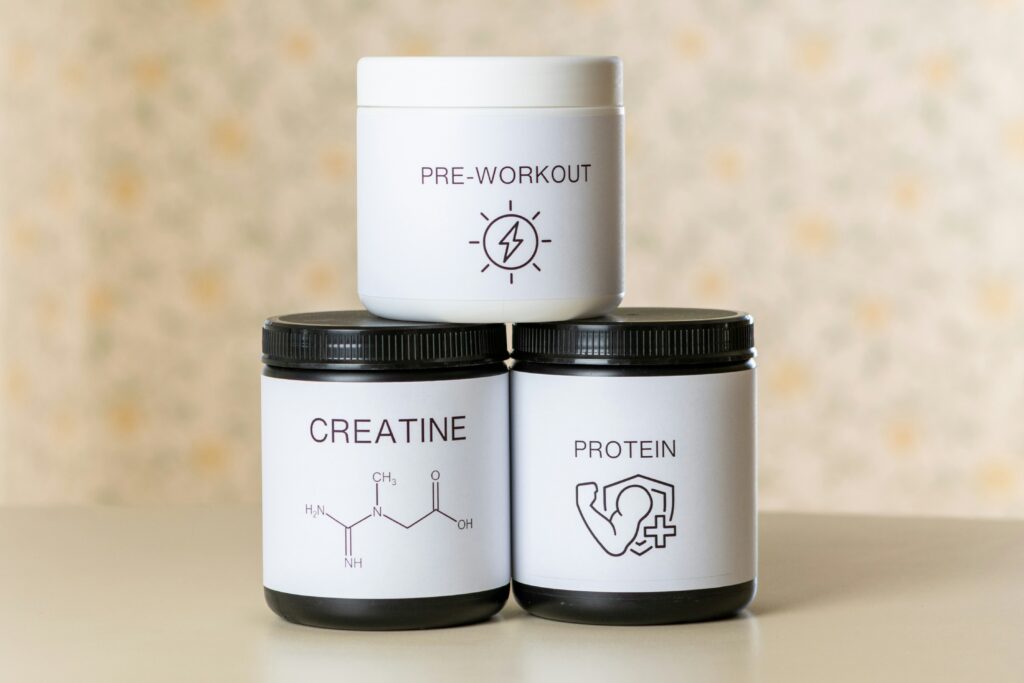Creatine monohydrate is one of the most researched and widely used dietary supplements in the world of sports nutrition. Whether you are a weightlifter, endurance athlete, or someone simply looking to support overall health and performance, chances are you have heard about creatine.
But with all the information (and misinformation) floating around, many people wonder: Is creatine monohydrate safe? Does it actually work? And should I be taking it?

This article explores everything you need to know about creatine monohydrate — from its role in the body and its benefits to potential side effects, myths, and considerations for athletes and non-athletes alike.
What is Creatine Monohydrate?
Creatine is a naturally occurring compound made from three amino acids: arginine, glycine, and methionine. Your body produces it primarily in the liver, kidneys, and pancreas. About 95% of your creatine stores are found in skeletal muscle, while the rest is located in the brain and other tissues.
The form most often used in supplements — creatine monohydrate — is the simplest, most researched, and most cost-effective version of creatine available. It works by increasing intramuscular stores of phosphocreatine, a key molecule that helps regenerate ATP (adenosine triphosphate), the body’s primary energy currency.
In short, creatine supplementation enhances the ability of your muscles to produce quick energy during high-intensity, short-duration activities like sprinting, weightlifting, and interval training.
How Does Creatine Work?
To understand creatine’s role, let’s break it down into simple steps:
-
ATP Energy System – Your muscles rely on ATP for contraction. During exercise, ATP is broken down rapidly to fuel performance.
-
Phosphocreatine Reserves – Creatine helps replenish ATP by donating phosphate molecules to ADP (adenosine diphosphate), converting it back into ATP.
-
Extended Power Output – With higher levels of stored phosphocreatine, you can sustain intense efforts longer and recover faster between bouts of activity.
This process explains why creatine monohydrate is so effective for strength, power, and performance in both recreational and elite athletes.
Benefits of Creatine Monohydrate
1. Increased Strength and Power
Creatine is best known for its ability to enhance muscle strength and power. Dozens of studies show that supplementation improves performance in weightlifting, sprinting, and explosive movements. For athletes, this means lifting heavier, sprinting faster, and jumping higher.
2. Enhanced Muscle Growth
By improving training volume (more reps, more weight, or more sets), creatine indirectly supports muscle hypertrophy. Over time, this leads to noticeable increases in lean muscle mass.
3. Improved Recovery
Research suggests creatine may reduce muscle damage and inflammation after intense exercise. Faster recovery allows athletes to train harder and more consistently without overtraining.
4. Benefits for Endurance Athletes
Although creatine is often associated with strength sports, endurance athletes can also benefit. Supplementation has been shown to improve sprint performance during cycling, running, and swimming, as well as recovery between intervals.
5. Cognitive and Brain Health Support
Creatine is not just for muscles. Studies show it may improve cognitive function, memory, and decision-making, especially under conditions of stress, sleep deprivation, or aging. Some research even suggests a protective role in neurological conditions.
6. Hydration and Thermoregulation
Contrary to old myths, creatine does not dehydrate the body. In fact, it increases water retention inside the muscle cell, which may improve thermoregulation and reduce risks of cramping during exercise in hot environments.
Potential Drawbacks and Side Effects
While creatine monohydrate is safe for most people, there are some considerations.
1. Temporary Weight Gain
Creatine often leads to a small increase in body weight, usually due to water retention in muscles. For some athletes, this is beneficial; for others (like long-distance runners), it may be undesirable.
2. Gastrointestinal Discomfort
A small number of users experience bloating, cramping, or diarrhea. This is often related to taking high doses or not dissolving the powder fully. Splitting doses or mixing it with meals usually prevents these issues.
3. Kidney Concerns (Myth vs. Reality)
One of the most persistent myths is that creatine damages the kidneys. However, decades of studies have shown that creatine supplementation within recommended doses does not harm kidney function in healthy individuals. Those with pre-existing kidney conditions should consult a healthcare provider before use.
4. Variable Response
Not everyone experiences the same benefits. Factors such as baseline creatine levels (higher in meat-eaters than vegetarians), muscle fiber composition, and training style can influence results.
How to Take Creatine Monohydrate

Dosage
The standard, evidence-backed dosage is 3–5 grams per day.
-
Loading phase (optional): Some people start with 20g/day (split into 4 doses) for 5–7 days, followed by 3–5g/day. This saturates muscle stores faster but isn’t necessary.
-
Maintenance phase: Simply taking 3–5g daily without a loading phase will achieve full saturation within about 3–4 weeks.
Timing
Creatine timing is flexible. You can take it before, after, or even with meals. Some research suggests taking it post-workout with a carb/protein meal may optimize uptake, but the difference is minor.
Consistency
The key to success with creatine is consistency. Missing occasional doses won’t undo progress, but regular intake ensures your muscle stores remain saturated.
Who Can Benefit from Creatine Supplementation?
-
Strength and Power Athletes – Weightlifters, sprinters, and football players see the most obvious benefits.
-
Endurance Athletes – Runners, cyclists, and swimmers may experience improved sprint performance and recovery.
-
Older Adults – Supplementation supports muscle mass, strength, and possibly cognitive health as we age.
-
Vegetarians and Vegans – Since creatine is found in animal products, plant-based eaters often have lower baseline levels and respond especially well to supplementation.
-
Students and Professionals – Creatine’s brain-boosting properties may aid mental performance under stress or fatigue.
Common Myths About Creatine
-
“Creatine is a steroid.”
False. Creatine is a naturally occurring compound, not a hormone or steroid. -
“It causes dehydration and cramps.”
Research consistently shows the opposite: creatine may actually improve hydration and reduce cramping risk. -
“It only works for bodybuilders.”
Creatine benefits athletes across many disciplines, including endurance sports, team sports, and even cognitive performance. -
“You need to cycle off creatine.”
No scientific evidence supports the need to cycle. Continuous use at recommended doses is safe.
Safety and Long-Term Use
Creatine monohydrate is considered one of the safest supplements available. Studies lasting up to 5 years show no adverse effects in healthy individuals. It is recognized as safe by major sports and health organizations, including the International Society of Sports Nutrition (ISSN).
That said, if you have a pre-existing medical condition, particularly kidney-related, consult with a healthcare professional before starting supplementation.
Practical Tips for Using Creatine
-
Mix creatine powder with warm water or a shake to ensure full dissolution.
-
Stay hydrated, not because creatine dehydrates you, but because proper hydration supports optimal performance.
-
If bloating occurs, reduce the dose and gradually build up.
-
Track your performance to see whether creatine is making a noticeable difference.
Final Thoughts
Creatine monohydrate is one of the most studied, effective, and affordable supplements on the market. It’s known to boost strength, power, and recovery, and may even offer benefits for brain function and overall health. While some individuals might notice mild side effects such as temporary water retention or minor digestive discomfort, these are usually manageable.
For athletes, creatine can enhance training performance and competitive results. For everyday individuals, it supports general fitness, muscle maintenance, and cognitive wellness.
Ultimately, whether creatine is right for you depends on your personal goals. If you want guidance on incorporating it safely and effectively into your routine, getting started with Ciranox is simple. Just fill out our sign-up form, and our team will help create a plan tailored to your fitness, recovery, and long-term health objectives.




